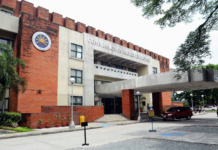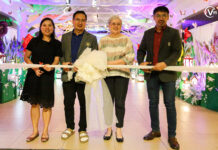I BELIEVE our family is extra-special.
At first blush, we are just an ordinary family. Both of my parents go to work. A brother and I are in college.
But what sets us apart from other families is my youngest brother: He’s a “special child.”
His name is Emilio and he has Down Syndrome (DS). Of course, we did not know what to do when we first learned about his condition. To be honest, I felt sad about what was about to come and how to adjust to the situation, but there was nothing we could do but to accept it—whole-heartedly.
Down Syndrome is the most common known cause of intellectual disability. People with DS experience some delay in their development, especially cognitive and learning development. While some people with DS may need relatively little support to lead an ordinary life, others may require a significant level of support.
Despite DS being a lifelong condition, children who have it can grow up to have healthy, happy, productive lives with the proper care and support from their family and friends.
At first, when we learned about my brother’s disability, we became depressed. But we thought wrong, because the disability of my kid brother enabled our family to rally. DS made our family stronger and happier.
Moreover, people with DS are not fundamentally different from anyone else, since they have the same needs and aspirations in life as those who are “abled.” These include the opportunity to enjoy the company of friends and family and having a role in the society. Our duty is to make sure that Emilio will have such opportunities.
As the eldest child, I feel having a sibling with special needs is a huge responsibility. It demands a lot of time and effort because I have to be there always—for him. It has been challenging as well for my other brother, who like me has to attend to his studies and work, while setting aside quality time for our youngest brother.
As for my parents, they have to work hard to meet all the needs of Emilio.
So I have never taken my responsibility to Emilio as a burden. Putting him to bed and taking him to school in the morning are things that I will not be tired of doing.
Emilio is now six years old. Taking care of him as he grows up, I have learned to be more caring, patient, responsible, and understanding. I have become a better person.
Now, I can say that I know how to be there for the people I love and how to stick to them no matter what.
Our family has learned that there is more to us than just being relatives—we are a team. We have assured ourselves we will always be there for each other.
Other families who are also experiencing the same situation should not fear nor be saddened. Speaking from experience, I must say everything is going to be hard in the beginning. But as soon as you learn how to fully accept it, you will be able to deal with it at your best.
I am glad that our society has become more welcoming to people with DS, recognizing that each person is unique in his own way, with his own share of talents, abilities, thoughts and interests.
With appropriate health and education services, and livelihood opportunities, people with DS can look forward to long and fulfilling lives. They can be valued members of society who contribute to the general welfare.
For this to happen, children with DS need to be treated with care and love, not only by their own families but also by other people. They should not feel that they are any different from us.
And although they have what may be seen as an “impairment,” they actually allow other members of the family and society to improve themselves. In effect, they allow us to repair our broken, selfish selves, so that we can become more loving, more caring and yes, more human.
















